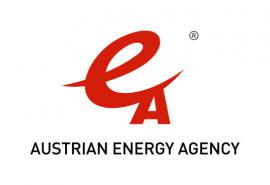The Austrian Energy Agency was founded in 1977 as a non-profit scientific association.
Main purpose and goal of the Austrian Energy Agency is to develop, support and implement measures that aim at a sustainable energy supply and use. Among the areas of work are innovative energy technologies (ET), energy-efficient systems (EE), and renewable energy sources (RES). In addition, the Agency participates and co-operates within projects and networks on national, EU and international levels to promote ET, EE and RES in cooperation with other institutions. Renewable energy and energy efficiency are thematic priorities of the Austrian Energy Agency. The AEA has long experience in the energy efficiency and renewable energy policy fields. This is documented by many projects and activities on regional, national and international level. Inter alia the Austrian Energy Agency is the organisation nominated for the Concerted Action for the Energy Services Directive (ESD) and the Energy Efficiency Directive (EED) in Austria and member of the EnR network. The AEA is also the overall coordinator of the Concerted Action on the Implementation of the Renewable Energy Directive (CA-RES). Since 2007, the Austrian Energy Agency is the national monitoring body for the implementation of the ESD in Austria, has prepared the first and second energy efficiency plan for Austria and is also involved in the preparation of the implementation of the EED.
Furthermore, the AEA has been involved in the support of both the government (on national and regional level) and national stakeholders in various political and strategic processes. In many activities, this support has involved the usage of modelling tools for the development of scenarios for the analysis of the future national energy system and its components, and the evaluation of the impact of policy measures. The main modelling tool is the Austrian energy system model, which has been developed by the Austrian Energy Agency using the TIMES model generator. It describes all the sectors of the national energy system using a combination of technology-specific bottom-up and energy-economic top-down approaches.





